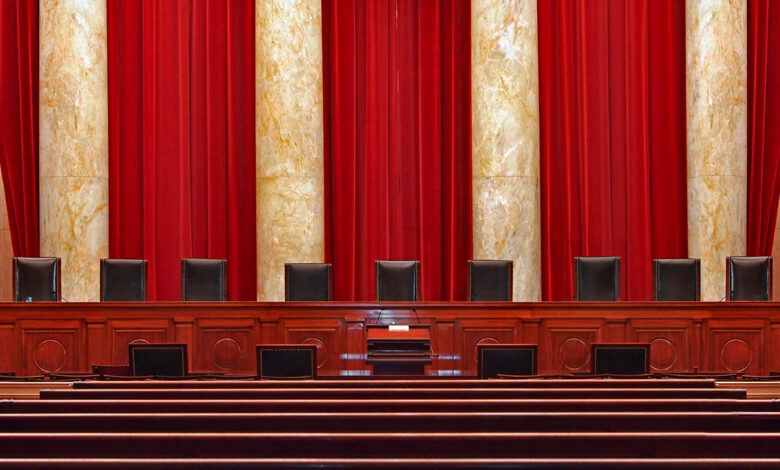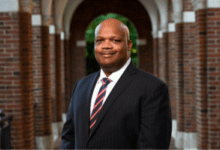
Supreme Court weighs a potential ban on Affirmative Action.
For nearly 60 years, federal government-enacted policies have granted sweeping changes to the workforce and education system as people of all races, colors, creeds, religions and disenfranchised groups advance their pathways in America.
Affirmative action, initiated under President Lyndon B. Johnson’s administration in the 1960s, granted these rights to people under the Civil Rights Act of 1964 and an executive order in 1965.
Under his issuance of Executive Order 11246, employment discrimination was prohibited.
Swiftly following in the 1960s and 1970s, colleges began to follow suit in the education realm allowing greater access to minorities, which has led to the recruitment and advancement of qualified minorities, women, those who are differently-abled and beyond.
Yet a potential ruling from the Supreme Court could undo years of progress under a ban that many are not sitting by idly and allowing.
The Supreme Court will reconsider race-based affirmative action in college admission practices, a New York Times article reported earlier this year, which would heavily impact African American and Hispanic students as the policy counts a student’s race among other factors when considering who can be admitted.
The Department of Justice urged the Supreme Court justices to reject a case against Harvard on the affirmative action matter.
“The filing from the office of U.S. Solicitor General Elizabeth Prelogar emphasized that lower U.S. courts had extensively reviewed Harvard’s racial admissions practices and found them sufficiently limited to meet Supreme Court precedent as they furthered the school’s interest in campus diversity,” CNN reported in the article.
Admissions practices that consider a student’s race were first upheld in a 1978 Supreme Court decision and reaffirmed in 2003, according to the article.
A move to ban the use of race in college admissions might drop minority enrollment in higher education, though colleges will adapt, a CNN article added, along with the bulk of America because “concepts such as diversity and inclusion are too widely accepted now to be erased, some scholars and diversity consultants say” in the article.
“Society is moving in the direction of diversity and inclusion, and there is no turning back,” said Barry Friedman, author of “The Will of the People: How Public Opinion Has Influenced the Supreme Court and Shaped the Meaning of the Constitution.”
Dr. Doris Fields, chief diversity officer of Eastern Michigan University, echoed similar sentiments in a statement to the Michigan Chronicle.
“Collectively, both domestic students of color and international students represent nearly 40 percent of Eastern Michigan University’s student population,” Fields said. “We are one of the most diverse public universities in Michigan — diversity is ingrained in our culture and mission. Therefore, any Supreme Court action on Affirmative Action would not affect Eastern, unlike other universities that have admissions policies in place to boost the enrollment of minority students.”
A recent Gallup Poll found that statistically 62 percent of Americans “generally” support affirmative action. However, nearly three-quarters of Americans in a 2019 Pew Research Center survey said colleges and universities should not consider race or ethnicity in student admissions, according to the CNN article.
Howard Ross, a diversity consultant and social justice advocate, said in the article that corporate America and institutions won’t put diversity efforts on the shelf because they realize it’s good for their bottom dollar.
“People are realizing that there is an enormous amount of talent out there that’s being underutilized and that companies and leadership that reflect their customer base perform better in the stock market,” Ross said in the article, adding that more diversity is better for business overall.
“When you go into a store and you see people like yourself you feel more comfortable, and a greater sense of belonging, and you feel they may understand your needs,” Ross, author of “Everyday Bias: Identifying and Navigating Unconscious Judgements in Our Daily Lives,” said. “That’s something that may be the difference between you buying a product at that store versus another one.”
Sacha Thompson, an inclusive culture coach and curator, told the Michigan Chronicle that the Supreme Court’s potential ban on affirmative action could have a long-lasting impact.
“If that decision is overturned, not only will colleges and universities that value diversity on their campuses need to be creative in their outreach efforts, but the outcome will also impact the outreach efforts so many companies have put in place over the last few years,” Thompson said. “One way to do this would be to increase the outreach to the typically underrepresented communities. For example, there has been a considerable call for outreach to HBCUs. However, only a handful have seen an uptick in those efforts on campus.”
Thompson added that however the wind blows, companies, colleges and universities and other institutions have to be ready to pick up the pieces.
“Ultimately, whichever way the court decides, colleges, universities and corporations need to be prepared to review their outreach and recruiting efforts,” she said.
CNN reported that even if the Court makes the change, it’s up to the people to be the change.
“The Court can try to remake society, but it can’t enforce its own rulings,” the article noted.
“The Supreme Court hands down decisions, but when they say everybody has to change their behavior, it’s almost impossible for them to get compliance,” Friedman said.
The Supreme Court plans to make its final verdict on affirmative action in higher education by June 2023.
The post Affirmative Action — Does it Have a Future? appeared first on Chicago Defender.










